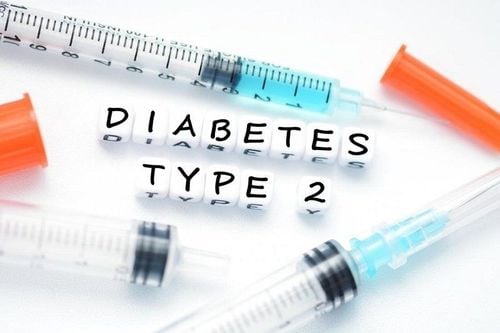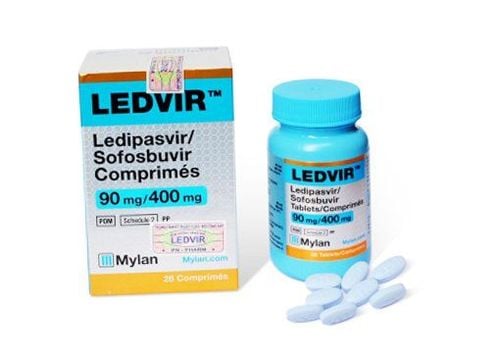This is an automatically translated article.
The article is professionally consulted by Master, Doctor Nguyen Thi Ngoc - General Internal Medicine - Endocrinology - Department of Examination & Internal Medicine - Vinmec Central Park International General Hospital.In patients with diabetes, one of the serious complications is vascular calcification. Vascular complications of diabetes put patients at high risk of cardiovascular disease and death.
1. Vascular complications of diabetes
In patients with type 1 and type 2 diabetes, increased blood sugar affects both directly and indirectly the entire blood vessels of the body, causing many diseases and contributing to increased mortality. Vascular complications of diabetes occur in large blood vessels and small blood vessels. In particular, large vessel complications in diabetic patients cause atherosclerosis and lead to calcification of medium and large blood vessels, including coronary arteries, peripheral arteries, cerebral blood vessels, increasing the incidence of diabetes. diseases related to these 3 groups of arteries and the disease progressed more rapidly. These complications are caused by hyperglycemia, hypertension and dyslipidemia.In patients with diabetes, macrovascular complications often develop early and rapidly, contributing to an increased likelihood of cardiovascular disease and a risk factor for myocardial infarction, stroke and mortality increased.

Bệnh tiểu đường gây ra nhiều biến chứng nguy hiểm và ảnh hưởng đến tính mạng như đột quỵ
2. How dangerous is vascular calcification in diabetic patients?
Vascular calcification due to atherosclerosis in diabetic patients is dangerous to the patient's life, specifically:Coronary artery: Increases the rate of ischemic cardiomyopathy, angina pectoris, myocardial infarction heart and death. Peripheral artery: Blocks the inferior portion of the popliteal artery and calcifies the vessel wall, causing claudication, limb necrosis, and possibly amputation. Cerebrovascular: Mostly affects the arteries outside the skull, causing stroke due to cerebral hemorrhage, cerebral infarction, sometimes causing transient ischemic attack, memory loss and other cerebrovascular diseases. In addition, calcification of blood vessels due to atherosclerosis also contributes to erectile dysfunction and leg ulcers. Rarely cause aortic aneurysm, mesenteric embolism In particular, vascular calcification in women with diabetes increases the odds of facing a greater risk of heart attack and stroke. .
3. Treatment of vascular complications of diabetes

Một trong những cách điều trị các biến chứng mạch máu lớn ở bệnh nhân tiểu đường là tiến hành phẫu thuật
Major vascular complications in diabetics increase the risk of cardiovascular diseases, therefore, there are many active treatment regimens to prevent primary and secondary coronary complications before they occur. out.
Researchers have shown that good glycemic control in patients with type 1 diabetes will help reduce the degree of calcification of artery walls, thereby reducing cardiovascular complications.
To prevent coronary complications caused by diabetes, patients are assigned to use groups of drugs to treat and control conditions of hyperglycemia, hypertension and dyslipidemia, and anti-inflammatory drugs. Platelet.
In some diabetic patients with severe arterial calcification, in combination with other medical conditions such as hypertension, dyslipidemia, insulin resistance diabetes, coronary artery stenting surgery may be necessary. However, it was difficult because the blood vessels were severely calcified.
In addition to taking drugs to prevent and control blood sugar, patients need to combine lifestyle changes, follow a strict diet and lifestyle to prevent dangerous complications of the disease.
Calcification of blood vessels due to atherosclerosis in patients with diabetes is one of the serious complications affecting the health and life of the patient.
At Vinmec International General Hospital, a screening package for diabetes and dyslipidemia is deployed to help detect pre-diabetes early, accurately classify diabetes type, develop a nutritional regimen, monitoring to minimize the risk and complications caused by diabetes.
To register for examination and treatment at Vinmec International General Hospital, you can contact Vinmec Health System nationwide, or register online HERE
SEE MORE:
Type 2 diabetes : Causes, symptoms, diagnosis and treatment What is a normal person's blood sugar? What is an oral glucose tolerance test?













